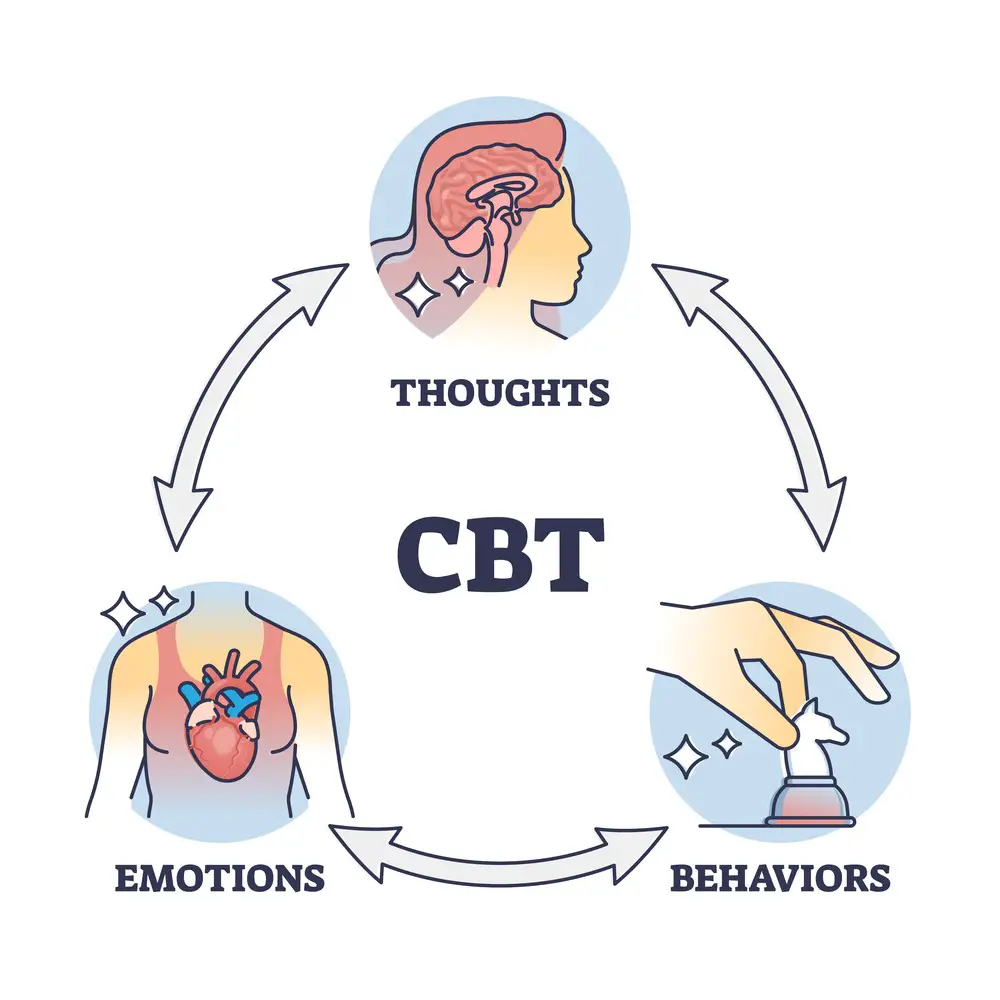As a BetterHelp affiliate, we receive compensation from BetterHelp if you purchase products or services through the links provided
Life transitions therapy focuses on helping individuals navigate significant changes in their lives. These changes can include a variety of milestones and events, such as career changes, retirement, marriage, divorce, or the loss of a loved one. The therapy aims to provide guidance and support as people adjust to new roles, responsibilities, and emotions.
During these transitions, it is not uncommon for individuals to experience various emotions, such as anxiety, stress, sadness, or even excitement. Life transitions therapy assists individuals in better understanding, accepting, and managing these feelings. Doing so aids in cultivating coping mechanisms and developing strategies to help individuals adapt to their new circumstances.
Key Takeaways
- Life transitions therapy supports individuals through significant life changes.
- A range of emotions can arise during these transitions, and therapy helps manage them.
- Developing coping strategies and adapting to new circumstances are key therapy goals.
 Understanding Life Transitions
Understanding Life Transitions
Life transitions refer to significant changes that people go through in their lives. These changes can disrupt an individual’s routine, leading to a period of adaptation and personal growth. Understanding life transitions and how they impact an individual’s overall well-being is essential.
Transitions can occur at various stages of life and can include experiences such as starting a new job, retirement, or other significant life events. These changes often present challenges and can be a source of stress or anxiety for many people.
For some, life transitions may not always be positive experiences. They might involve losing a loved one, the end of a relationship, or other traumatic life events. Developing healthy coping mechanisms and strategies to navigate these difficult times is crucial in these cases.
Life transitions therapy is one approach to helping individuals cope with the changes they are experiencing. This type of therapy focuses on equipping individuals with the skills and tools necessary to manage their emotions and navigate their transitions successfully. Working with a trained therapist, individuals can better understand their situations and develop a better sense of control and resilience.
In conclusion, understanding life transitions is crucial in helping individuals adapt and grow through their challenges. Through life transitions therapy, one can gain valuable insight and support during these periods of change, ultimately leading to a more fulfilling life experience.
 Life Transitions: Types and Common Themes
Life Transitions: Types and Common Themes
Life transitions can be both exciting and challenging at the same time. They involve significant changes in a person’s daily routine, living situation, relationships, or identity. Some common life transitions include moving, dealing with loss, and facing serious illnesses like cancer.
During these transitions, it’s normal to experience a mix of emotions such as fear, distress, depression, and anxiety. Different people may react differently to the same transition. However, some common themes can be identified in coping with life transitions.
Adjustment disorder is a common psychological issue individuals face during life transitions. It occurs when a person struggles to adapt to a new situation or stressor, leading to emotional or behavioral problems. Symptoms can range from mild to severe, including sadness, anger, hopelessness, and even physical symptoms like sleep difficulties and headaches.
Life transitions may also trigger episodes of depression or anxiety in some individuals. Prolonged feelings of sadness, loss of interest in daily activities, or excessive worrying can interfere with one’s ability to function and cope. These mental health issues may require the intervention of a professional therapist or counselor.
In addressing life transitions, it is essential to identify the specific issues or stressors related to the change. These might include the practical challenges of moving to a new home, the emotional pain of losing a loved one, or the physical and mental struggle of coping with cancer. Acknowledging these challenges and seeking appropriate support can help individuals manage their emotions, develop coping strategies, and enhance their resilience during these critical periods.
Life transitions therapy aims to guide and support individuals undergoing significant life changes. By incorporating various techniques like cognitive-behavioral therapy, stress reduction, and mindfulness, therapists can help clients develop tools and coping strategies to navigate transitions more effectively.
 The Impact of Life Transitions on Mental Health
The Impact of Life Transitions on Mental Health
Life transitions can significantly impact an individual’s mental health and overall well-being. These positive or negative changes often lead to increased stress levels, which can trigger various mental health-related issues.
One of the primary ways life transitions affect mental health is through mood changes. A person undergoing a significant life change may experience sadness or fear, sometimes leading to a depressed or anxious mood. When these emotions become persistent and start affecting daily functioning, it could be classified as a mental health concern.
Life transitions also commonly lead to changes in sleep patterns, which can further impact an individual’s mental health. Insufficient sleep or inconsistent sleep schedules can contribute to feelings of distress and irritability. This, in turn, influences mood and overall mental health.
Moreover, during significant life transitions, people may engage in reckless or dangerous behaviors to cope with stress. This behavior could exacerbate existing mental health issues or even create new ones. For example, substance abuse or risky sexual behavior can lead to more significant mental health consequences.
Physical reactions to life transitions, such as headaches or other bodily discomforts, can also impact an individual’s mental health. Headaches, especially when frequent, can lead to frustration and may negatively affect a person’s ability to manage the changes they are experiencing.
In conclusion, it is essential to be aware of the potential impact of life transitions on mental health. By recognizing the signs of stress, mood changes, sleep disturbances, and risky behavior, individuals can better manage their mental health and adjust to life’s inevitable changes.
Coping Strategies for Life Transitions
Life transitions can be challenging, but they also offer opportunities for growth and positive change. Implementing effective coping strategies can help individuals navigate these transitions with confidence and a clear, neutral mindset.
One coping mechanism is to prepare for the changes ahead. Establishing routines and habits can provide stability and structure during times of change. Daily routines can help conserve energy by reducing decision fatigue and facilitating adaptation to new situations.
Adopting a positive mindset is also crucial in embracing life transitions. It helps individuals approach new challenges with excitement and curiosity rather than anxiety or fear. A positive outlook can also increase feelings of self-efficacy, making it more likely that individuals will persevere and succeed in new environments.
Meditation and mindfulness practices can foster a sense of inner peace and acceptance during life transitions. Being present and engaged with one’s thoughts and emotions can allow for a deeper understanding of oneself, which can be particularly valuable during times of change.
Individuals can navigate life transitions with confidence, resilience, and personal growth using these coping strategies. By embracing change as an opportunity for positive development, individuals can cultivate a more adaptable and resilient mindset, better preparing them for life’s inevitable shifts and transitions.

The Role of Therapy in Life Transitions
Life transitions can be both exciting and challenging. During these times, therapy is crucial in helping individuals navigate changes and cope with the accompanying stress. A therapist can assist in setting goals, creating a support system, and teaching strategies to manage emotions effectively.
One of the primary goals of therapy during life transitions is to provide guidance and consultation. Skilled therapists listen and understand their client’s needs while helping them identify the emotions they are experiencing and the issues they are facing. This understanding allows for developing personalized strategies and action plans that aim to make the transition smoother.
Therapy, such as cognitive behavioral therapy (CBT), offers evidence-based approaches that focus on the relationship between thoughts, feelings, and behaviors. These techniques help individuals challenge negative thinking patterns and develop healthy coping methods to manage stress and anxiety during transitions. CBT is particularly useful for individuals going through life transitions such as career changes, relocation, or losing a loved one.
Another valuable aspect of therapy during life transitions is the availability of social support. This can come in individual counseling sessions or group therapy sessions where people going through similar transitions can share their experiences and offer support. Group therapy sessions foster a sense of belonging and encourage participants to build connections with others facing similar challenges.
Overall, therapy serves as a valuable tool in addressing life transitions. By offering guidance, a range of therapeutic techniques such as CBT, and opportunities for social support, therapy can greatly assist individuals in handling significant life changes with confidence and resilience.
 Specific Therapeutic Approaches
Specific Therapeutic Approaches
Life transitions therapy incorporates various therapeutic approaches to help individuals navigate life changes. One common method therapists use to address life transitions is cognitive behavioral therapy (CBT). CBT focuses on helping clients identify negative thought patterns and behaviors and replacing them with healthier ones. Through CBT, individuals can learn to cope with stress and challenges during significant life changes.
Another important aspect of life transition therapy is creating a support network. Developing strong connections with friends, family members, and mental health professionals is crucial during significant change. A support network can provide emotional and practical assistance, helping individuals navigate the uncertainties of life transitions.
In addition to incorporating CBT and fostering a strong support network, therapists should prioritize creating a compassionate and comfortable therapeutic environment. Establishing trust and rapport with clients is essential for effective therapy. Practitioners should ensure clients feel safe and supported while discussing their emotions and experiences.
By utilizing these specific therapeutic approaches, life transitions therapy can effectively support individuals in coping with the challenges and stresses of significant changes. Through cognitive behavioral therapy, strong support networks, and compassionate counseling, clients can navigate life’s changes with greater resilience and confidence.
Challenges and Barriers in Seeking Therapy
Life transitions therapy is essential for individuals coping with major life changes, such as anxiety, stress, loss, fear, shame, concerns, and trauma. Several challenges and barriers may discourage someone from seeking therapy when it would benefit them.
First and foremost, one of the most prevalent barriers is the stigma surrounding mental health and therapy. Individuals may be reluctant to seek help, fearing that expressing their vulnerabilities might be perceived as a weakness or result in social isolation from their peers.
Financial constraints are another significant obstacle to accessing therapy. For many, therapy may seem like a luxury rather than a necessity, and the cost of sessions can be prohibitive, especially for those without insurance coverage or limited income.
Furthermore, a lack of awareness and understanding of the benefits of therapy and how it works can pose challenges to seeking help. Misconceptions about therapy, such as believing it is a prolonged process with no guarantee of success, may deter people from pursuing sessions, even if they have serious concerns about their mental well-being.
Geographical location and availability of therapists can make access more difficult for some individuals, particularly in rural areas with limited mental health resources. This can create additional stress for individuals in need of assistance, as they may have to travel long distances or delay their treatment due to scheduling conflicts.
Lastly, cultural differences and language barriers may impede someone from seeking therapy. Many therapy modalities have been developed under specific cultural contexts and, thus, can be less effective for individuals from diverse backgrounds. Additionally, finding a therapist who speaks a patient’s native language and understands their cultural nuances greatly contributes to better therapeutic outcomes but may be challenging in some areas.
Addressing these challenges and barriers to seeking therapy is essential in ensuring the widespread availability of support, especially for individuals going through significant life transitions.
The Role of Social Support in Life Transitions
Life transitions can be challenging for adults as they navigate new experiences and adjust to unfamiliar environments. Social support is vital in helping individuals cope, providing a safety net, and fostering positive change. A strong support network can alleviate stress and promote well-being by offering emotional and practical assistance.
Social support can come in many forms, including friends, family, colleagues, or community groups. These connections provide comfort and encouragement, enabling individuals to face their challenges confidently. Furthermore, social support can help individuals develop problem-solving skills, build resilience, and maintain a sense of self-worth.
Support networks also play a crucial role in the success of life transitions. The presence of people who care and share similar experiences enables a safe space to discuss feelings, ask for advice, and validate emotions. This exchange of perspectives can be particularly helpful in reinforcing an individual’s sense of belonging and identity during periods of change.
Incorporating social support into therapy is essential for individuals undergoing life transitions. Therapists can assist individuals in identifying and strengthening their existing support networks or help them create new connections. Therapists can facilitate a more effective transition process by encouraging clients to engage with a supportive community, leading to greater emotional and mental stability.
In conclusion, social support is fundamental in successfully navigating life transitions. A robust support network provides emotional and practical assistance, fostering resilience and promoting positive change in the individual’s life. Incorporating social support into therapy can lead to more effective results and improved well-being.
Frequently Asked Questions
How can therapy help with life transitions?
Therapy can provide support, guidance, and coping strategies to help individuals navigate major life changes. Therapy can facilitate personal growth, improve relationships, and enhance well-being by exploring feelings, beliefs, and thoughts surrounding these transitions.
What are common life transitions addressed in therapy?
Common life transitions addressed in therapy may include career changes, moving to a new city, a child’s birth, a loved one’s death, divorce, or retirement. Each transition can bring unique challenges and emotional reactions that therapy can help address.
How do therapists approach life transitions?
Therapists approach life transitions by understanding the individual’s unique experience and perspective and then employing various therapeutic techniques to help identify and process emotions, develop coping skills, and promote a healthy adaptation to change.
What techniques are used in life transitions therapy?
Techniques used in life transitions therapy may include cognitive-behavioral therapy (CBT), solution-focused therapy, mindfulness-based approaches, stress reduction techniques, and psychodynamic therapy. These techniques will vary based on the individual’s needs and therapeutic goals.
How long does it generally take for life transitions therapy to show results?
The duration of therapy varies depending on the individual’s specific needs and goals, the complexity of the transition, and the chosen therapeutic approach. Some people may find relief and progress in a few sessions, while others may require more extensive therapy to address their concerns fully.
Can life transitions therapy be combined with other therapeutic approaches?
Yes, life transitions therapy can be combined with other therapeutic approaches, such as couples therapy, family therapy, or group therapy. Integrating these approaches can provide additional support and resources for individuals facing major life changes.
As someone who has faced mental health challenges while navigating a difficult custody battle with a narcissistic ex-partner that refuses to comply with any court order, I understand the importance of seeking help and support when dealing with mental health issues. I take Lexapro to manage my symptoms and prioritize self-care practices like taking long daily walks to stay grounded and centered.
Therapy has also been an important tool in my mental health journey. Through regular sessions with a therapist, I’ve developed coping strategies for managing stress and anxiety and gained a deeper understanding of my thought patterns and behaviors.
Despite the challenges posed by my ex-partner’s severe case of narcissism, I remain committed to fighting for my children’s well-being and being reunited, doing what I can to manage my mental health.
To provide support and guidance to others who may be facing similar challenges, I write articles about mental health and narcissism. I hope to inspire others to seek help and support for their mental health issues and to provide resources for those struggling with difficult relationships and mental health challenges. With the right tools and resources, anyone can beat their mental health issues and live a fulfilling, healthy life.
- Stress Management: What is the Relationship Between Stress and Addiction? - June 28, 2024
- Exploring Techniques to Maintain a Healthy Lifestyle without Drugs - May 28, 2024
- How Acupuncture Helps Treat Chronic Fatigue Syndrome - May 28, 2024
This site contains affiliate links to products. We will receive a commission for purchases made through these links.


 Understanding Life Transitions
Understanding Life Transitions Life Transitions: Types and Common Themes
Life Transitions: Types and Common Themes The Impact of Life Transitions on Mental Health
The Impact of Life Transitions on Mental Health Specific Therapeutic Approaches
Specific Therapeutic Approaches

